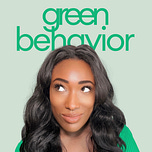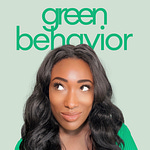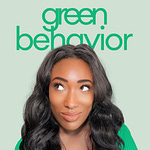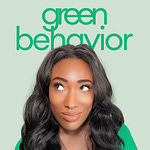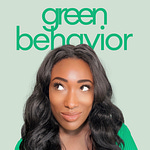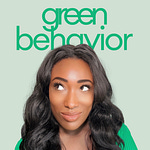In Partnership With OEKO-TEX
I talk a lot about perceived value—why it’s so important and how it drives consumers to pay more for certain products, especially in sustainability.
But what we haven’t talked about as much is why perceived value works so well: trust.
For consumers to pay the "green premium," they need to trust that a brand is authentic about its sustainability efforts and that the product is worth the investment—whether that’s because of its quality, style, emotional connection, or all of the above.
We often talk about trust in sustainability—how brands earn it, how they lose it, and how it shapes what people actually buy. But from a psychology perspective, trust is a cognitive shortcut—it saves us from having to closely scrutinize every detail and lets us feel confident that something (or someone) is reliable.
Take the cruelty-free label on a beauty product. We don’t whip out our phones to investigate the lab or call up the manufacturer to confirm no bunnies were harmed in the making of our mascara. That little stamp says it all—and we trust it, no questions asked.
In sustainability, where skepticism about greenwashing is rampant, trust is the ultimate dealbreaker. It allows people to skip the deep dive and feel good about choosing products or brands that align with their values.
That’s where certifications like OEKO-TEX come in. In a world of side-eyes and sustainability claims, certifications are designed to act as trust signals—reassuring shoppers that the product they’re buying actually aligns with their values.
But do certifications in sustainability really work? Do people actually trust them to guide their decisions? Are sustainability-related claims just sophisticated greenwashing?
In this episode of Green Behavior, I sit down with Ben Mead, Managing Director of Hohenstein Institute America, to dig into the role certifications play in fighting greenwashing and building consumer confidence. We explore what it takes to build trust in a sea of sustainability claims, why some brands are hesitant to talk about their efforts, and how certifications like OEKO-TEX can help bridge the gap between transparency and consumer skepticism."
What we talk about:
How certifications like OEKO-TEX operate, their role in verifying claims, and how they add value to both consumers and brands by ensuring transparency and trust in sustainable products.
The psychology behind consumer trust and decision-making, particularly in understanding how certifications and labels influence shopping habits and build credibility.
Strategies for brands to authentically communicate sustainability efforts without fear of backlash, even when they aren't "perfect."
How emerging technology, shifting regulations, and increasing consumer awareness are shaping the future of certifications, traceability, and global standards.
The disconnect between consumers noticing certifications and actually understanding their significance.
Sidebar: If you have sensitive skin, eczema, or just want to be mindful of the chemicals in your clothes, this is the episode is for you!

Catch every episode of Green Behavior on Spotify or Apple Podcasts.
Thank you to OEKO-TEX for supporting me, the podcast, and bringing YOU a new episode of the Green Behavior podcast!


